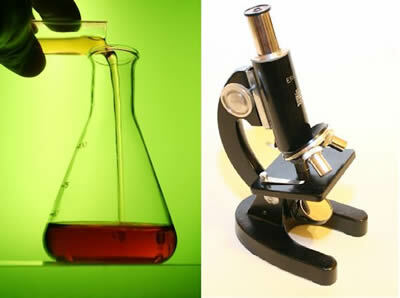Characteristics of Scientific Research
Science / / July 04, 2021
Scientific research is the activity focused on obtaining new knowledge, rectification or correction of existing knowledge, and the obtaining scientific and technological advances, as well as the search for solving problems and enigmas within the different fields covered by the science.
Scientific investigations are carried out through the use of the scientific method, which is the method with which it is sought to obtain relevant and reliable information, for the understanding of phenomena, as well as the verification, correction, or application of knowledge, using a set of procedures or techniques with the that seeks to explain a phenomenon or problem, where some steps are followed in scientific research, such as observation, creation of hypotheses, experimentation, verification or rejection of the hypothesis, which result in the formulation of theories and laws during the investigation, with which the trouble.
Some of the Characteristics of Scientific Research:

Structure.- It has fundamental elements in its structure, such as the subject, object, means and an end; The subject refers to whoever develops the research, be it a person or a group of them, the object is what is being investigated, being understood by the matter or the subject on which the investigative processes are carried out, which can be a phenomenon, or an object, for example a chemical or a new material for the industry. Medium refers to the different processes that have to be carried out to obtain knowledge or stated objective, and purpose or objective, is the purpose for which the research has been carried out in its set. This end can be the simple obtaining of knowledge, for the verification or rejection of a previous knowledge, or the obtaining of a material or useful knowledge for a determined purpose.
Use of reason.- Scientific research is methodical, systematic, and reflective; During the investigation, use is made of rational methods, of observation, experimentation and verification, of what is investigated, avoiding conceptions preconceived and non-science factors as metaphysical responses with which one could try to solve the problems that arise during the process of investigation.
Obtaining new knowledge or rectification of existing ones.- Thanks to scientific research, new knowledge is obtained and the knowledge (hypotheses and theories) that is they were certain, until they are found through research, new hypotheses or laws that include factors or anomalies that are They were unaware, were discarded at first, or were not taken into account due to prejudices or the lack of technical means for their investigation.
Follow a method.- Uses the scientific method which is the set of certain procedures and techniques, such as observation, the creation of hypotheses, the verification of hypotheses by means of the experimentation, the creation of theories after the experimentation and verification of the hypotheses, and the consequent creation of laws resulting from the verification of the theories, as well as their use systematically seeking the solution to the problem that arises in a coherent, regular and continuous way, measuring, describing and classifying the processes followed in an orderly way within the investigation.
It is a key piece for the industries.- Scientific research is essential for fields such as medicine, biology, industries, chemicals, petrochemicals, industries food, power plants or institutions such as the armed forces, for intervening in obtaining better materials or technologies. This happens for example when obtaining favorable results after a scientific investigation in which new materials are obtained, such as better alloys for the steel, automotive, air or naval industries, new chemicals as in the case of obtaining new plastics, fertilizers, or medicines, as well as in the development of new technologies such as better computers or household appliances and telecommunications, or, where appropriate, improvements to existing technologies, either by giving greater capacity to the devices, reducing their size, saving energy or improving them accordingly. various ways.



